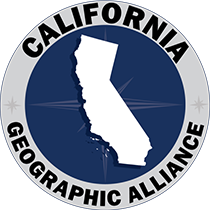If ever there was any question that geography is foremost among professions, the last shred of doubt has been dispelled by reports on employment trends over the past decade. The U. S. Department of Labor, The Guardian newspaper, MSN.com, Money Magazine, and PayScale.com stated our case better than we geographers have. Let’s start with the most recent and work backward in time. MSN.com in its Money section on May 5, 2014 covered “America’s most and least common jobs.” Geography was among the least common, and I’ll talk about that aspect later, but there was good news too: “Still, some of these uncommon jobs do have growth potential and include relatively high salaries.” The data cited by MSN.com came from the U. S. Bureau of Labor Statistics (BLS): “The average geographer earned more than $75,000 annually as of 2013.” What’s more, “The BLS forecasts that these jobs will grow by 29 percent…between 2012 and 2022.”
On April 22, 2012, Debra Auerbach of CareerBuilder.com wrote about “10 jobs with above average salaries.” Then at $74,170, geographers were second highest, and all jobs on the list were projected to grow more than 29 percent over the subsequent decade. Auerbach explained, “Geographers study the earth and its land, features and inhabitants. They also examine political and cultural structures as they relate to geography. This is a good occupation for lovers of travel, as geographers often travel to conduct fieldwork.”
In 2010, The Guardian published a poll showing that geography graduates had the very lowest unemployment rate of all disciplines in the United Kingdom (source). Among the previous year’s graduates, 7.4 % of geographers were unemployed in January 2010, compared to 16.3 % of information technology (IT) graduates. “What makes…geography grads the most employable?” Alison White asked, and the answer came from Nick Keeley, director of the Careers Service at Newcastle University: “Studying geography arms graduates with a mix of skills employers want to see: Geography students generally do well in terms of their relatively low unemployment rates. You could attribute this to the fact that the degree helps develop a whole range of employability skills, including numeracy, teamwork through regular field trips, analytical skills in the lab, and a certain technical savviness through using various specialist computing applications. Also, the subject area in itself cultivates a world view and a certain cultural sensitivity. These all potentially help a geographer to stand out in the labor market.”
For many years the U.S. Department of Labor has recognized geospatial technology as one of the three top growth industries today, alongside nanotechnology and biotechnology. “Over 500,000 professionals in fields ranging from environmental engineering to retail trade analysis are asked to use GIS in their jobs. The Bureau of Labor Statistics show that surveyors, cartographers, and photogrammetrists (a subset of GIS occupations) are experiencing faster than average employment growth – anticipating growth at 19 percent between 2008 and 2018” (source).
Money Magazine and PayScale.com placed “geographic information system analyst” in its list of the “Top 100 Best Jobs in America” in 2010. The 2011 list of the “Best Jobs in Fast-Growth Fields” included various careers that utilize GIS.
Why, you may ask, with all these striking figures high salaries, rapid growth, low unemployment, aren’t students beating down the doors to get into our classes? Why are geography departments not booming in every university in the country? Why, in fact, are geography departments closing at a disturbing rate? Why do parents routinely ask, when their sons and daughters announce they want to study geography, “How on earth will you make a living?” Most puzzling of all, why are departments changing their names to attract students concerned about employment? The answer is pure, unadulterated ignorance among the U. S. public. Geography is one of the least common professions because few employers know to call geographers “geographers.” Few know to advertise for a geographer when that’s what they need to hire. Our students, however, find high salary jobs, seldom called “geography,” because we give them skills and attitudes that warrant high pay.
Clearly, we geographers aren’t making our case as convincingly as we could and should. We aren’t informing students of the disciplines true potential of employment. We aren’t informing employers that there are plenty more good prospects like the ones they have already hired, if only they will support our programs and seek our graduates.
The American Geographical Society will continue to fight to get this message out: Geography is the key, not only to understanding, but also to success.
Note: From the August 2014 newsletter of the AGS.

